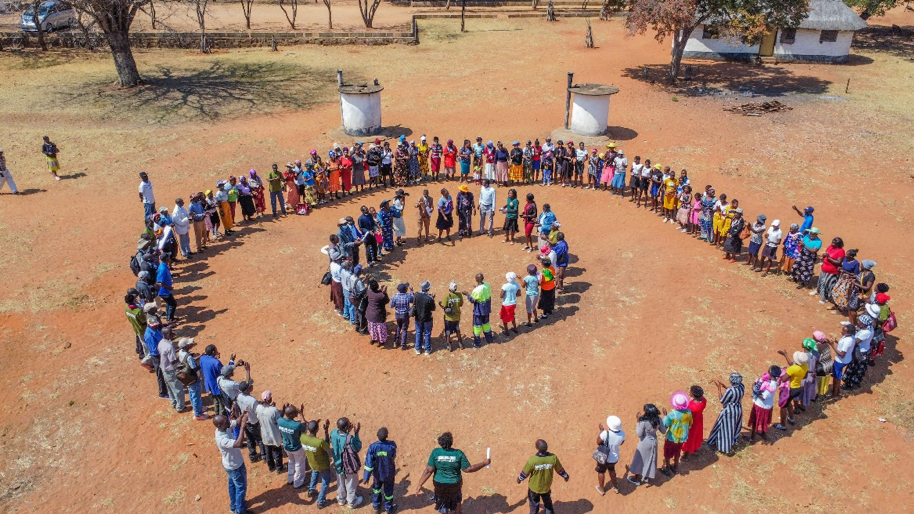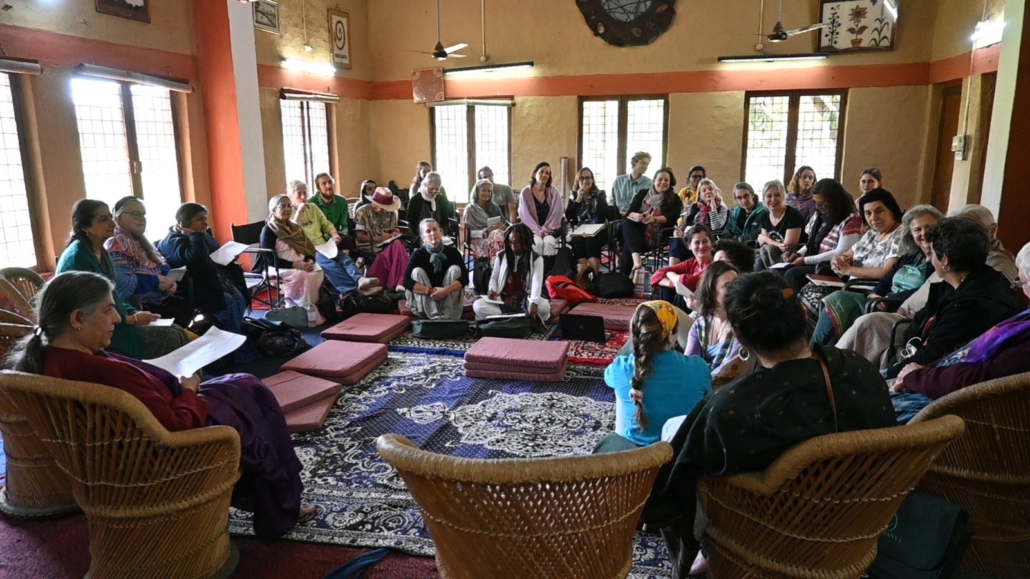As I write this little note, Western Zimbabwe is in a dry and hot spell at an absolutely wrong time of the year. As agro-pastoral farmers, we are facing a bit of panic for the lagging crops that still needed a bit of rain, the crops that were ripened had to take an early drying. It’s a bit of a dilemma, as any rainfall now will cause sprouting of the drying grains and other root crops like peanuts and bambara nuts.
We are, on the other hand facing really hard times with Cyclone Freddy causing loss, of lives and properties in the Southern African region. Cyclone Freddy, having come in through Madagascar, is now in Malawi and making its way to Zambia and my home country Zimbabwe is under threat of this raging storm. The uneasiness that these moments stimulate, tends to bring a huge wave of hopelessness.
However, the potential of regenerative agriculture, stories of farmers, and many different humans of earth in regeneration have stimulated most of us to keep going. We now more than ever, need the hope of working TOGETHER, humans and nature to bring Team humanity out of the vicious cycles degeneration.

Photo credit: IGugu Trust-Zimbabwe
Photo from Kachechete Ward in Hwange, Zimbabwe, Leaders and community standing Together for regeneration.
Here’s a quote from Ronnie Cummins, one of The Founding Directors at Regeneration International that inspired me recently;
“Never underestimated the power of one individual; yourself. But please understand, at the same time, that what we do as individuals will never be enough. We’ve got to get organized and we’ve got to help others, in our region, in our nation, and everywhere…”
This quote spoke deeply to me and I suppose it may resonate with most of us. Keeping the connections alive, keeps us inspired, hopeful and on track. The idea is not to only dream, but to see it coming to pass by taking the smallest actions in a bigger collective! Thankfully, we have a lot of networks that are bringing to life this network building around regeneration, and agro-ecology, seed and food movements, Holistic Management and many more.
To digress a little; our efforts of potential impact are consistently watered down by individualism, scarcity mindsets and comparisons in the movement. Yet, if we are to regenerate this world, we have to embrace the depth, and complexity of the connectedness of all pieces in this global puzzle. It is a messy dance, but a dance anyways. We are all re-learning how to design with living patterns at the core.
If we agree that regeneration and regenerative actions are a cure to ecological disasters, social decay, and economic struggles, then we must embrace that this work is established in chaos. That is, an acceptance that each of us have a localized wisdom on how to bring back the essence of our communities at all levels of life. We are learning again what made us and our ecosystems thrive, and how do we bring that to manifestation in the current times. Looking ahead, we are all building the beautiful story of regenerating our world. There’s no singling out champions, because in the end, we either win or sink as Team Humanity. Which one will it be?
I am eternally grateful for all the incredible minds and human spirits (too many to count, but I hold you in my heart with lots of gratitude) that charted the path of thinking differently. I believe sharing our small victories, thoughts and lessons creates beautiful waves of learning, action and support. In my head, I’m reminded of the Mexican wave, in a huge soccer stadium, in a place of unlikely order or form, yet supporters and spectators in a game they love and wish for a win – achieve a metachronal rhythm to express their support and create a winning environment in the stadium. The supporters don’t move from their seats –but their actions, create a ripple, and enhance a movement of the wave to the next community of people in the stadium. The catch- they do it faithfully when it’s their turn, the wave continues to travel around the stadium. There is no particular order, within those disconnected seating arrangements, back and forth as others would have had a little much to drink- the idea is to win- Together!


